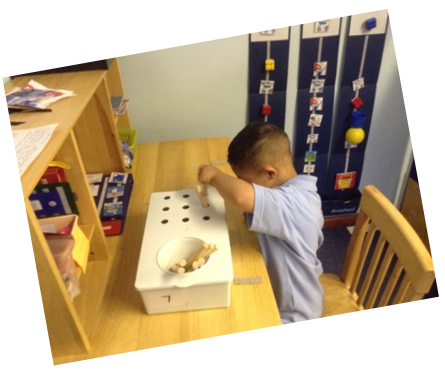* Strategies & Interventions – TEACCH
The TEACCH approach tries to respond to the needs of people with additional needs using the best available approaches and methods known so far, for educating and teaching autonomy. It is not a single method and can be used alongside other approaches.

Shoe box tasks
ShoeboxTasks® provide the opportunity for children and adults who need a high degree of structure to experience success. Developed by Ron Larsen during his time as a therapist with the North Carolina TEACCH program, the Tasks have proven to be an educational breakthrough for those students who are beginning their educational journey while developing greater independence. The Tasks also provide an example of the kind of visual organization necessary for teachers/caregivers who are serving this population.
Making Choices/Taking Turns
Research studies have shown that providing choices has many positive benefits for children, their families and others with whom they interact. Studies have demonstrated that it promotes positive behaviour, prevents problem behaviour, increases motivation, supports the development of communication, social skills, academic improvements and independence. Allowing for choice-making gives children opportunities for socially appropriate power and control. Children who have opportunities to make choices are more likely to engage in appropriate activities and have more positive interactions with peers and adults and materials than do children who are not provided with choice-making opportunities.
Turn taking is a vital factor in building positive relationships and social skills. Young children are very egocentric and it can take a while for them to understand and share with their friends. Turn taking can be applied to many areas of development and does not only cover the sharing of toys. These skills begin to form at a very early age. Babies will babble in response to an adults voice, showing early communication skills with the baby learning to take turns in a conversation. As language begins to mature, children are able to express their feelings and emotions, with many going through the “me” and “mine” phase.
